Last week, on a particularly balmy day, my husband moved his gardenia tree from its winter space in our family room to its summer place near the bottom of our deck stairs. Then the weather changed back to crisp days and colder nights, and in a few days the leaves of the gardenia were wilting and falling to the ground. Now we will be grateful if it comes back to life this season.
We never expected May to be so cold. It means we haven’t done any of our planting. Our flower boxes still need weeding a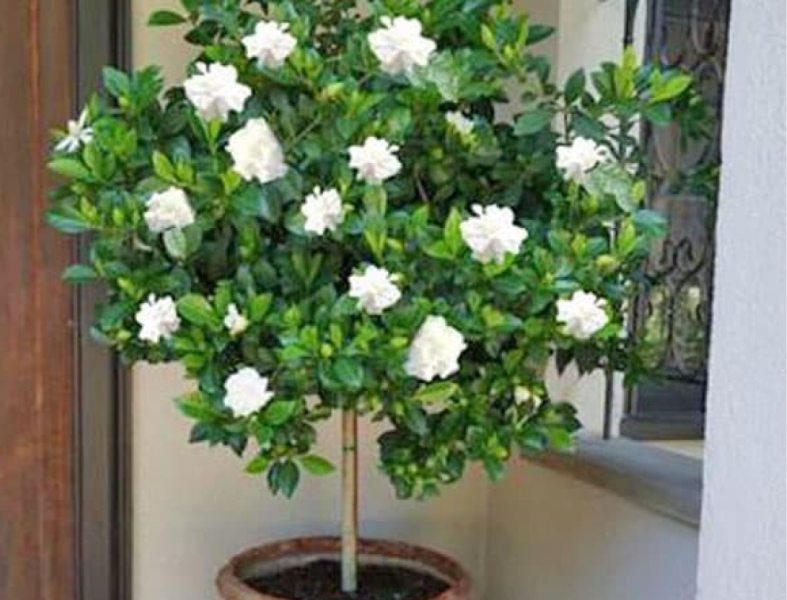 nd the earth around our bushes has not been tilled. Even the tomato pots sit empty along the fence, waiting for the rich earth that nourishes the plants and causes my husband to check with impatience every day for signs of the delicious plump fruit.
nd the earth around our bushes has not been tilled. Even the tomato pots sit empty along the fence, waiting for the rich earth that nourishes the plants and causes my husband to check with impatience every day for signs of the delicious plump fruit.
As we continue our quarantine during damp and chilly days, we feel the missing piece – the new and beautiful life brought forth in a garden.
Writer Nathanial Hawthorne captured the joy of expectant waiting for new life, writing, “I used to visit and revisit it a dozen times a day, and stand in deep contemplation over my vegetable progeny with a love that nobody could share or conceive of who had never taken part in the process of creation. It was one of the most bewitching sights in the world to observe a hill of beans thrusting aside the soil, or a row of early peas just peeping forth sufficiently to trace a line of delicate green.”
Our gardens are certainly not as grand as Hawthorne’s, with ours being just small planters and a few rows of tomatoes, but they are beautiful reminders of God’s love of variety and color. They teach us of the interconnectedness of all living things, drawing hummingbirds and butterflies, along with deer, brazen squirrels and groundhogs looking for a meal.
This year, while we are waiting for the right time to plant, I’m thinking I will start my garden indoors. In times of stress, pushing tender roots into the earth and getting your hands dirty has a remarkable calming effect, good for anxious adults and homebound children alike. And there’s nothing more satisfying than enjoying the fruits of your labor when flowers bloom or herbs grown on a counter make meals so much more delicious.
Gardening immerses us in the wonders of God’s creation, and the questions that arise from little gardeners keep us on our toes. “Why are there bugs living in the soil? Why does moss grow in one planter but not the other?” And then there are the observations – of the delicate vines that wrap knowingly around the fence and pole, and the flowers that turn always to the sun.
You cannot create a curriculum more valuable or an experience more meaningful in helping children understand their role as stewards of the earth.
Pope Francis teaches, “Nurturing and cherishing creation is a command God gives not only at the beginning of history, but to each of us. It is part of his plan; it means causing the world to grow responsibly, transforming it so that it may be a garden, a habitable place for everyone” (General Audience, World Environmental Day, 2013).
Mary Regina Morrell is a Catholic journalist, author, and syndicated columnist who has served the dioceses of Metuchen and Trenton, New Jersey, and RENEW International in the areas of catechesis and communication.
Book Connection
Our Family Prays is a collection of rituals, blessings, prayers, and traditions meant to encourage and inspire Catholic families to keep prayer at the heart of their home. It is organized by the seasons of the liturgical year and includes religious traditions and celebrations from around the world.
What are some ways you can imitate Jesus when you are on the playground or on a sports team?
Now I know some of you are wondering why I am responding to a question of the week that was obviously written for the consideration of children. But children, and the ways they surprise and witness to us in beautiful ways, are at the heart of my thoughts this week.
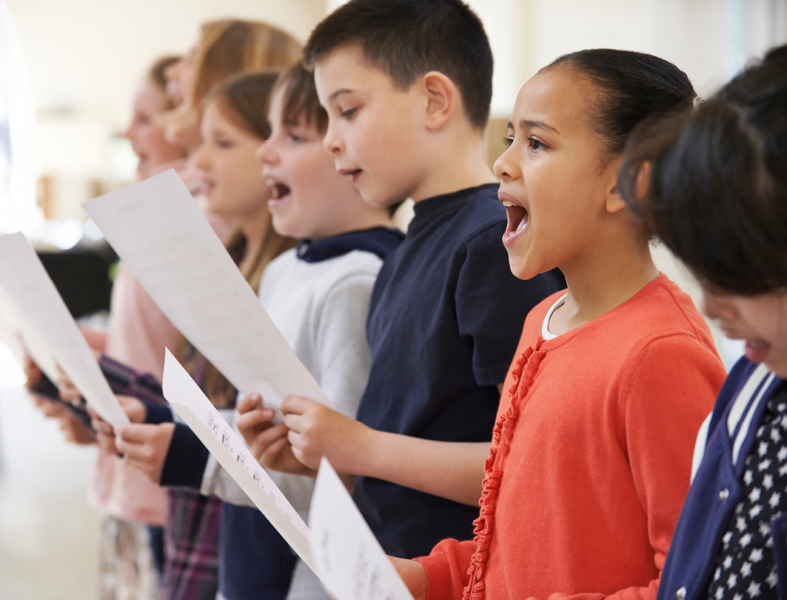 Several years ago, I directed a school choir at an inner-city parish. The choir was made up of fourth through eighth graders who met with me during their Thursday lunch hour. One of the members was an eighth-grade boy whom I will call Joshua. Joshua lived with his grandmother, who did her best to provide for him. But, being the smallest boy in his class, Joshua was often teased and tormented by the other students. And one of the things he was teased about had to do with singing in the choir. That was something that eighth-grade boys just didn’t do!
Several years ago, I directed a school choir at an inner-city parish. The choir was made up of fourth through eighth graders who met with me during their Thursday lunch hour. One of the members was an eighth-grade boy whom I will call Joshua. Joshua lived with his grandmother, who did her best to provide for him. But, being the smallest boy in his class, Joshua was often teased and tormented by the other students. And one of the things he was teased about had to do with singing in the choir. That was something that eighth-grade boys just didn’t do!
One Thursday, the most popular and athletic eighth-grade boy in the school came to choir. I tried not to look shocked, but I was most surprised that Jonathan joined us. After all, according to his classmates, boys singing in the choir just wasn’t cool. After choir, I thanked Jonathan for joining us, and I asked him what inspired him to come to choir. He simply said, “I didn’t think Joshua should be alone.”
Today is a good day to think about and pray for all who are serving us so that we have what we need, stay safe, maintain health, and do not walk through this challenging time of the coronavirus pandemic alone. It is a good day to offer encouragement by sharing in the 7:00 p.m. round of applause for healthcare workers, by saying thank you to the stockers and clerks at our grocery stores and pharmacies, by giving a friendly wave and a thank you to our postal carriers and delivery persons, and even by participating in take-out Tuesday efforts to encourage our local restaurateurs.
How can we imitate Jesus, even on the most trying of days? We can follow Jonathan’s example and look for the Joshuas in our families, workplaces, neighborhoods, and social circles. We can find our ways to stand beside them so that they too are never alone.
Mary Sellars Malloy has over forty years’ experience as a Catholic educator and lay minister. She is a frequent workshop presenter on the topics of prayer, liturgy, spirituality, the Sacraments, and the RCIA. In addition, Mary leads retreats and parish missions throughout the country. Her goal is to encourage Catholics of all ages to appreciate and to live their Catholic faith.
For many parents and grandparents, finding ways to cope with caring for children during a pandemic is difficult. Parents are often overwhelmed by too much time with their kids, never really having any time to themselves to recover their energy and balance their own emotional highs and lows.
 Grandparents, like me, are relegated to video chats or, my favorite, porch visits where you stand outside the house, smile, wave, and try to chat with family members through a glass door.
Grandparents, like me, are relegated to video chats or, my favorite, porch visits where you stand outside the house, smile, wave, and try to chat with family members through a glass door.
Last week my daughter-in-law, who probably needed adult company more than my grandchildren, sat on a bench under the living room window inside her house and spoke to me through a screen while she attempted to eat a now cold lunch. I could hear the noise of the grandchildren in the background as they scrambled for their lunches and picked the occasional battle with a sibling.
When my daughter-in-law got up to investigate why the two-year-old was now screaming a blood curdling “I’m hurt” scream, the nine-year-old took his place at the window, lunch in hand, and started talking like we were out together at the diner.
“I wish this weren’t happening,” he said, looking at me with a homemade mask covering most of my face, and then looking back down at his plate. He talked about the meat shortage he heard about and wondered what that might mean for them.
“Not much for you guys!” I laughed, reminding them of their penchant for frozen waffles, macaroni and cheese, pasta and pizza. “I don’t think you’d have any problem just having meat once or twice a week,” I said.
He smiled and agreed. We talked about our favorite foods, which ones we could happily eat every day and not get tired of, and the fact that we still had all the food we needed, even if we couldn’t always have what we liked the most.
I was grateful for the opportunity for the conversation because this is a child who is prone to worry.
I am also grateful that my son and daughter-in-law work hard at helping all the children maintain some peace of mind.
Those who have already traveled the long road of difficult times often have the best advice, like Nancy, who was born in 1929 and lived through the Great Depression. She said, “This, too, shall pass. Please, please refrain from instilling a sense of insecurity in your children when times are tough. Give them extra love and assurance that you are all secure in God’s love.”
A powerful way to take the focus off our anxiety, no matter our age, is to focus it in prayer. Our prayers are opportunities to leave our burdens with God, to turn to God for strength, for wisdom, and for hope. Praying together with our children helps them learn that prayer is not just for them. If parents turn to God for strength, children are more likely to do the same.
Downplaying the sense of fear that comes through our own conversations and our own behaviors is vital for children. It is helpful to explain the changes we have undertaken – like wearing masks, washing hands, and keeping socially distant – as ways of supporting others, more than out of fear of what might happen to us or our loved ones.
When we share this approach with our children, we can also remind them that when Jesus was asked which of the Commandments was the greatest, he replied, “Love God with all your heart, all your soul and all your mind,” and “Love your neighbor as you love yourself” (see Mark 12: 30,31).
During these stressful times, it is good to be reminded that God expects us to take care of ourselves and that self-care is essential to caring for others too.
Mary Morrell is a Catholic journalist, author, and syndicated columnist who has served the dioceses of Metuchen and Trenton, New Jersey, and RENEW International in the areas of catechesis and communication.Product Highlight
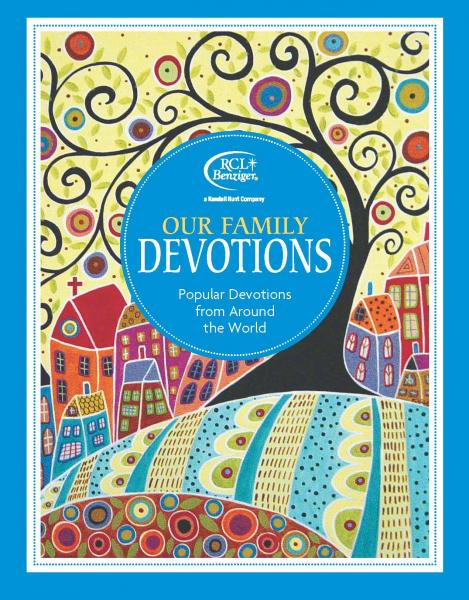 .Our Family Devotions explores how Catholics throughout the world celebrate their faith. Each of the thirty-nine devotions includes a description and suggestions for celebrating in the classroom or in the home. Available in bilingual Spanish. View sample at: samples.rclbenziger.com
.Our Family Devotions explores how Catholics throughout the world celebrate their faith. Each of the thirty-nine devotions includes a description and suggestions for celebrating in the classroom or in the home. Available in bilingual Spanish. View sample at: samples.rclbenziger.com
How are you a shepherd to those in your care?
by Mary Sellars MalloyMany of you are familiar with the Little Black Book for Lent and the Little White Book for Easter. They were the inspiration of the late Bishop Ken Untener.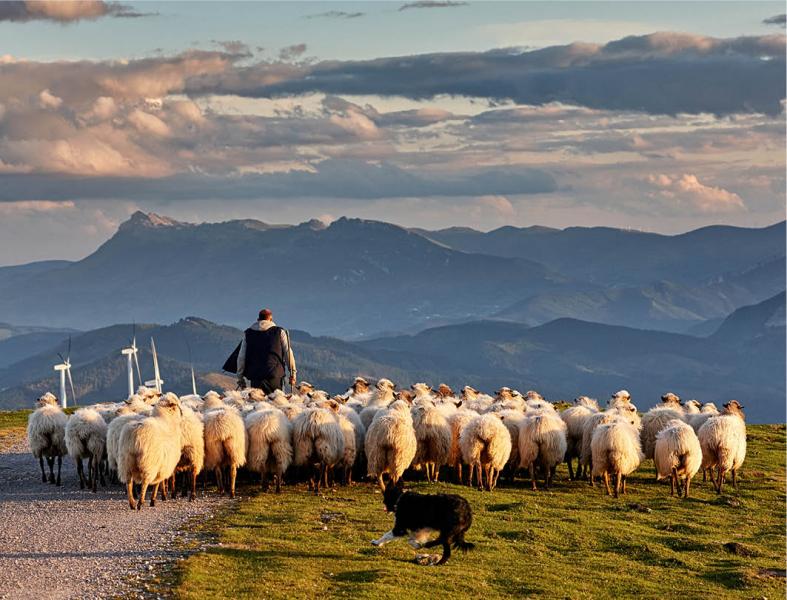
In his last years of ministry, Bishop Ken realized that the people in his Diocese—the sheep of his flock—needed a shepherd. He so strongly felt this that he reoriented the focus of his ministry to let go of some of his administrative duties in order to focus on shepherding the people. Out of his desire that the sheep of his flock take time for daily prayer and to grow in their knowledge of the Catholic faith, he came up with the idea of the little books—tools that invited his flock to spend six minutes a day in reading and prayer.
Bishop Ken’s example of shepherding could inspire each of us this Easter season.
First, Bishop Ken took the time to get to know the flock in his care. Who is in our care at this point in time? Children? Aging parents? Friends? Coworkers? Neighbors? Those in our community who are unemployed and in need?
Second, he identified a need. What are the needs of those in our care? The gift of time? Food, money, or material goods to help others recover from the effects of the pandemic? When gathering restrictions are lifted, an invitation to become part of a Bible study, a book club, a ministry, or a circle of support?
Third, he reoriented his priorities to address the greatest need of those in his care. Where might we need to change our priorities or our routines in order to best shepherd the sheep of the flock God has asked us to tend? Recent weeks have certainly provided us with time to think about our lives and priorities. Where are our thoughts and reflections leading us?
As the Great Fifty Days continue, how will you follow Jesus’ example by being a shepherd who tends for the sheep of your flock?
Mary Sellars Malloy has over forty years’ experience as a Catholic educator and lay minister. She is a frequent workshop presenter on the topics of prayer, liturgy, spirituality, the Sacraments, and the RCIA. In addition, Mary leads retreats and parish missions throughout the country. Her goal is to encourage Catholics of all ages to appreciate and to live their Catholic faith.
When my fourth grandson was born with an intestinal abnormality, it was necessary for my son and daughter-in-law to find an apartment in a neighboring state, close to the hospital where the baby would ultimately stay for almost six months. My daughter-in-law stayed there for the entire time.
I stayed at their home with their three young sons to help keep life as normal as possible, as hard as that can be when visits to mom are limited to weekends, and dad is balancing work, home, and being present for mom and baby.
It’s a difficult adjustment for young children, one that leaves them open to fear and anxiety.
 One stormy night, we lost power. The storm came up quickly and we weren’t prepared for it. The howling wind and claps of thunder were scary enough, but when the lights went out there was sobbing and terror from the little ones. Cries of, “I want my mom!” broke my heart.
One stormy night, we lost power. The storm came up quickly and we weren’t prepared for it. The howling wind and claps of thunder were scary enough, but when the lights went out there was sobbing and terror from the little ones. Cries of, “I want my mom!” broke my heart.
Thankfully, the oldest – all of nine years old – knew where the flashlights and batteries were kept, and we found candles as well. But the limited light didn’t help much to allay the children’s fears. I gathered them together on the couch in the family room to read books by flashlight, which calmed them down a bit, but as the oldest said with the insight of a philosopher, “I wouldn’t be so afraid if my mom and dad were here. They always know what to do.”
I was at a loss, except to keep telling them we would be fine and surely the lights would be on soon. And in my desperate attempt to help them feel more secure, we started listing the many things for which we could be grateful.
The middle son, age six and the spiritual soul of the family, spoke up through stifled sobs – “God is watching over us, and his angels.”
“The computer is charged so we have light from the screen,” said the oldest, “and your phone is charged so we can talk to mom and dad.” He’s the IT person among the siblings.
“Snacks,” said the two-year-old, who smiled as he reached for the organic gummy dinosaurs on the end table.
We worked our way through a long list of reasons for gratitude and I could feel their anxiety diminish. They were still missing mom and dad, but the situation was now manageable and they were more comfortable.
There’s an amazing side effect of being grateful. It diminishes fear because it flows from hope. Fear writes a story of worst possible scenarios and engenders worry of what might happen.
Gratitude reminds us that there are always blessings to fill the deep hole which fear creates.
This challenging time of dealing with quarantine, and the fears of getting sick or of loved ones getting sick, can cause great anxiety in children.
We can help them by remembering a lesson from Saint Paul, who wrote to the Ephesians while he was in prison, saying, “Be filled with the Spirit . . . giving thanks always and for everything to God the Father . . . " (Ephesians 5:18,20).
Make gratitude a practice in your home. It will help to relieve stress and keep everyone grounded in the present rather than living in fear for the future.
Consider starting a family gratitude journal. Begin it with a family prayer you write together. It will be a treasured memento in years to come.
Mary Morrell is a Catholic journalist, author, and syndicated columnist who has served the dioceses of Metuchen and Trenton, New Jersey, and RENEW International in the areas of catechesis and communication.by Nancy Bird
Your life is not your work. Conventional wisdom tells you that to be successful you must maintain the non-stop hustle and bustle of navigating daily life. You wear your busyness as a badge of honor and always say yes to the requests from work, home, church. What is the old saying? “Ask a busy person...”
 Thomas Merton, in his book Conjectures of a Guilty Bystander, states: “[T]here is a pervasive form of contemporary violence to which we all easily succumb: activism and overwork.” Typically, you may not see overwork or busyness as violence to yourself. In today’s chaotic culture, busy can be viewed as productive. But it also leads to stress, burnout, and anxiety. Busyness and overwork can wreak havoc on you physically, emotionally, and spiritually, and destroy your own inner capacity for peace.
Thomas Merton, in his book Conjectures of a Guilty Bystander, states: “[T]here is a pervasive form of contemporary violence to which we all easily succumb: activism and overwork.” Typically, you may not see overwork or busyness as violence to yourself. In today’s chaotic culture, busy can be viewed as productive. But it also leads to stress, burnout, and anxiety. Busyness and overwork can wreak havoc on you physically, emotionally, and spiritually, and destroy your own inner capacity for peace.
Your life is not your work; not even Church work. Your life is to embrace your vocation as a baptized child of God; to live as a child of the light and be the light to those around you. Your vocation is to be who God created you to be; to listen to a voice not out in the distance calling you to be something different, but a voice deep within calling you to become who God has already created you to be. As a catechist, you are called to peel away the layers and discover the light of God that has always been within. You are encouraged to embrace your personal call to holiness and be a joyful witness.
As Pope Francis states in Gaudete et Exsultate, “The important thing is that each believer discerns his or her own path, that they bring out the very best of themselves, the most personal gifts that God has placed in their hearts (cf. 1 Cor. 12:7), rather than hopelessly trying to imitate something not meant for them” (GE 11).
“This should excite and encourage us to give our all and to embrace that unique plan that God willed for each of us from eternity:...” (GE 13)
Or as Saint Francis de Sales said: “Be who you are and be that perfectly well”.
If you are that important to God, then you need to take care of yourself and put yourself on the “To Do” list. As the flight attendant states during the important safety announcements, you are to put your oxygen mask on first before assisting others.
How do you do take care of yourself first? Enter self-care and self-compassion. It is not selfish to take an active role in connecting to your inner wisdom to create a life that reflects your true gifts and helps you live your baptismal vocation.
You are invited to live each day in the goodness of God’s presence and to be the very best you can be. Let us look at four separate, yet integrated identities: Body, Mind, Emotions, and Spirit.
Body
“Do you not know that you are a temple of God and that God’s Spirit dwells in you?” 1 Corinthians 3:16
How well are you taking care of your temple? Could you do better? Here are a few thoughts to ponder:
- Do you gobble down food or gently savor it? Pay attention to what, where, and how you eat. Eating with a friend cuts down the amount of food you eat and conversation aids in digestion.
- Do you believe you cannot find time to exercise an hour every day? Break it down into smaller increments of 5-10 minutes. Take the stairs, pretend to jump rope or do the Pogo Prayer. Imagine you are on a pogo stick, then think of all the blessings in your life. Jump up and down while shouting out your blessings.
- How well are you sleeping? There is a lot of research on the amount, types, and benefits of a good night’s sleep. Read Why We Sleep by Matthew Walker, or check out Arianna Huffington’s 8 tips for a better sleep from her book The Sleep Revolution. Just make sure you read a physical book or use an e-reader that does not emit blue light.
- When was the last time you had a massage or manicure, or experienced appropriate human or healing touch? Self-care is not always about spa days. It is about nurturing your body and recharging your battery. Find someone hug, and hold the hug for 6 seconds.
You are a soul with a body, not the other way around. Be attentive to the gift of your body and treat it tenderly.
Mind
“You are more than your mind tells you are.” Eckhart Tolle
Have you ever experienced a tape that is running in your mind? Self-talk tapes can either build you up (“I am a child of God”) or tear you down (“How could I have been so stupid?”). Have you ever replayed a situation or revisited a conversation over in your mind? Remember, you are a product of your past, but you are not a prisoner of it. Here are some tips to eliminate negative thoughts and focus on the positive side of life.
- Whenever you experience a self-talk tape that is tearing you down, say out loud one of the following:
- Cancel/Cancel
- Delete/Delete
- Eject/Eject
- Erase/Erase
- Quit “should-ing”
- I should be doing …
- I should be better at…
- I should, I should, I should…
- Curtail your intake of news and checking your smartphone. On average, we look at our phones 85 times a day and spend more than five hours browsing the web and using apps. Avoid technology for the first 30-60 minutes after waking and 1-2 hours before bedtime.
- Negative and positive thoughts cannot exist at the same time, so when overwhelmed with negativity think about one good thing. One good thing you have experienced during the day. One good friend you can call. One good gift from a gracious, loving, and merciful God.
Emotions
“Christian joy is usually accompanied by a sense of humor.” Pope Francis
What comes first, the thought or the feeling? Do you know that with each thought a physiological change takes place in the body? Toxins and endorphins are released. During times of stress, non- essential circuits in the brain shut down. So, chances are you may feel anger or frustration and react quickly instead of thinking through the problem or situation that is before you. Whether you choose to believe it or not, you are in control of your emotions. Your emotions do not control you. The following are some suggestions to get the good endorphins (serotonin) released into your system in order to make you feel good and curtail negative emotions.
Dr. Dale Anderson, in his book Never Act Your Age, describes how laughter turns on your body’s upbeat chemistry so ‘drugs’ are dispensed from your inner pharmacy to make you feel happy, healthy, and years younger. He suggests that every morning you look in the mirror and kiss it. Yes, kiss your own reflection! Dr. Anderson also suggests that we do a 15- second deep belly laugh. “Fake it until you make it,” he says. I must tell you that looking at my own reflection each morning definitely makes me laugh.
Medical experts say that three to five minutes of belly laughing equals three minutes of strenuous exercise. Laughter stimulates circulation, increases heart rate, and kicks your immune system into gear. It stabilizes blood pressure, massages inner organs, facilitates digestion, and increases oxygen supply to muscles.
We cannot just laugh away all life’s problems, but there is a healing power to laughter. Life is tough, yet as catechists, we walk by faith and God always walks with us. There is a deep and comforting joy knowing that truth. If you cannot laugh, at least smile. The same endorphins are released as with laughing. Pay attention to your face and notice what is happening. Ponder the things that bring you joy and make you smile. Look for surprises each day. Smiling is contagious, and it is difficult to be sad when you are smiling.
“Laughter is carbonated holiness.” Anne Lamott
Spirit
“God is doing something in me even though I do not see it or feel it.” Pope Saint John XXIII
So, what is God doing in you right now?
It may be difficult for busy catechists to find time for renewal, rejuvenation, and recalibrating. As much as you would love a weekend away or month-long retreat, life gets hectic. One small step you can take is to make time to nurture yourself throughout the day. Here are three simple suggestions.
- Wake Up with Gratitude
- The minute your eyes open, revel in the extraordinary gift that you are alive. As you slowly place your feet on the floor, give thanks for the gift of mobility. Consider what God might be inviting you to do this day. Open your heart to the opportunities that await you. What kind of holy mischief can God and you get into today?
- Celebrate the Day
- Be Alert. Ask the Holy Spirit to nudge you. As did Mother Teresa, look for the face of Christ disguised in those your encounter. Remember that you mirror God to them. Notice the beauty and look for surprises as you go through your day.
- Live the new Commandment. Friends of mine try to find ways to “out-love” each other. Imagine a world where everyone is trying to love as God loves, even on the busy highway or in a long line at the grocery.
- Breathe. When the day gets hectic, take a deep breath in through your nose and slowly breathe out through your mouth. Breathe in God and breathe out love.
- Smile more. Pope Francis says, “I can’t imagine a Christian who does not know how to smile.” There are 80 different ways to smile – we can surely find one or more reasons to do so. Look up from your mobile devices to smile at others too!
- Sleep in Peace
- The friends who try to out-love each other shared that at the end of each day they hold hands and say the Our Father, keeping in mind all the prayer requests that came to them that day. “Thy kingdom come. Thy will be done.” What a beautiful way to bring the day to a close!
The spirituality of wellness, self-care, and self-compassion is a long and continuous process. Integrating body, mind, emotion, and spirit sounds easy, yet requires attentiveness and intentionality. Christ has no hands but yours. You need to take very good care of your hands, legs, and complete self. As catechists, those entrusted to your care deserve the best from you. You deserve the best too!
Nancy Bird has been involved in religious education as a catechist, parish catechetical leader, and youth minister. She combines practical experience, creativity, and motivational enthusiasm to energize those called to embrace and live their Baptism joyfully. Presently she serves as Director of Training and Professional Development for RCL Benziger, a Kendall Hunt Company, resides in Tallmadge, Ohio, and continues to be a volunteer catechist.
In what way have you come to know Jesus better through the breaking of the bread at Eucharist?
by Mary Sellars MalloyWhere have you recognized Jesus present with you in recent days? A chance invitation to a fall concert led my husband and me to join our community chorus, where we are once again singing Bach, Handel, Mozart, and other works that challenge and engage us. We feel Jesus present in the choir, which is directed by a faith-filled and extremely talented woman who is welcoming and inspiring. And, although the coronavirus pandemic forced the cancel of recent rehearsals and a spring concert, we look forward to being together with this community once again. 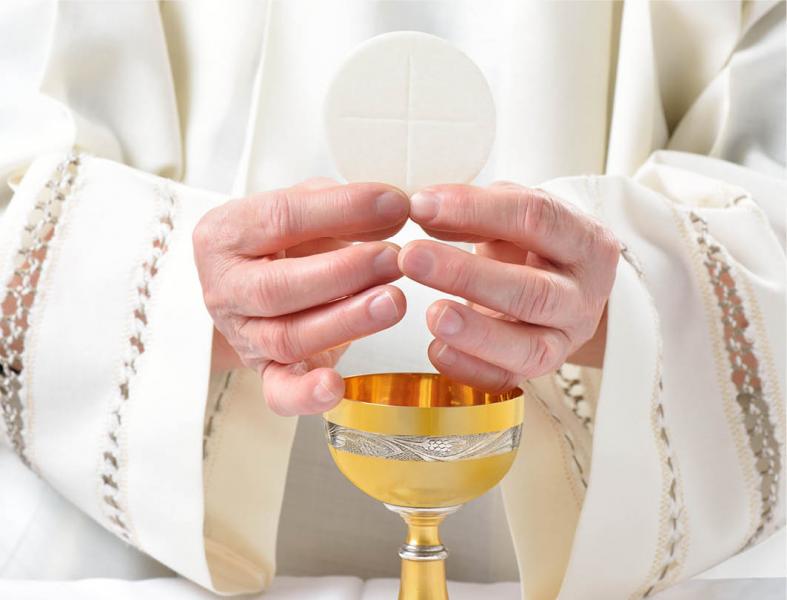
In today’s Gospel (Luke 24:13-35), the disciples recognize Jesus in the breaking of the bread. This Bread of Life we know as the Eucharist, the Real Presence of Jesus, has many names. In the Church’s Litany of the Holy Eucharist, Jesus is named as the bread of heaven, the bread of life, the bread of thanksgiving, life-giving bread, holy manna, new covenant, food for everlasting life, food for our journey, holy banquet, medicine of immortality, and pledge of eternal glory.
As I grow older, my own understanding and appreciation of the Eucharist is as life-giving bread and food for our journey. Especially during the recent cancellation of masses, I have come to realize more and more my hunger for the Word, the Eucharist, and the company of those in my parish community. When we are together to celebrate, as I process to the Table of the Eucharist, and even now that we are apart from each other for a time, I pray for the people who are normally in procession with me. I pray that their hungers will be satisfied and their wounds will be healed. I pray that all of us are strengthened to keep moving forward to the kingdom, knowing that we are loved by God and that we are never alone on the road.
This week, whether or not you are able to physically join your parish community for the celebration of the Eucharist, take time to think about your own understanding and appreciation of it. Pray to Jesus using one of the titles from the Litany of the Holy Eucharist. And be mindful of the many ways Jesus truly is present to you.
Mary Sellars Malloy has over forty years’ experience as a Catholic educator and lay minister. She is a frequent workshop presenter on the topics of prayer, liturgy, spirituality, the Sacraments, and the RCIA. In addition, Mary leads retreats and parish missions throughout the country. Her goal is to encourage Catholics of all ages to appreciate and to live their Catholic faith.
What could you do this week to help strengthen the faith of someone who is faltering?
by Mary Sellars MalloyWe often refer to today’s Gospel (John 20:1-9) as the story of “doubting Thomas”—the Apostle who wouldn’t believe Jesus was resurrected from the dead unless he saw the nail marks in Jesus’ hands and put his hand in Jesus’ side. When I think of those who are faltering in their faith, I think of Thomas—by all other accounts a faithful disciple, a faithful follower of Jesus, who just experienced doubt and needed visible proof.
This is the story of most disciples of Jesus, myself included. Especially as we continue to live amidst the uncertainties of the coronavirus pandemic, we are all experiencing moments when we feel alone, afraid, unsure, tired, and doubtful. We falter. And we, like Thomas, just need a visible sign of Jesus’ existence in our lives, of God’s love for us. Think about those times in your life. In the past, what calmed your fears, gave you strength, and reassured you that Jesus was indeed alive and working in your life to bring things together for your good? These are the very things you can do to help others remain strong in faith and hope right now.
This week, offer to those who are faltering what you have been given—words of encouragement, a card, a call, and if restrictions in your area have been lifted, an invitation to lunch, an invitation to church, and prayer. In all your conversations, speak words of peace. In the spirit of Saint Faustina, extend mercy. And, above all, remember that you are the visible proof of God’s existence in the world. Let all you say and do reflect your identity as a daughter or son of God, made in God’s image, and deeply loved.
Mary Sellars Malloy has over forty years’ experience as a Catholic educator and lay minister. She is a frequent workshop presenter on the topics of prayer, liturgy, spirituality, the Sacraments, and the RCIA. In addition, Mary leads retreats and parish missions throughout the country. Her goal is to encourage Catholics of all ages to appreciate and to live their Catholic faith.
How can you show this week that you truly believe in the Resurrection of Jesus?
by Mary Sellars Malloy Many years ago, I was hospitalized for several months. I suffered an illness that normally affects the very elderly (I was 38 at the time) or alcoholics (I don’t drink). Much of my time was spent in intensive care, and the doctors truly didn’t expect me to live. So, I understand in a small way the meaning of the word resurrection, “coming back to life after death.” For here I am, nearly twenty-five years later, laughing, loving, and LIVING! Alleluia!
Many years ago, I was hospitalized for several months. I suffered an illness that normally affects the very elderly (I was 38 at the time) or alcoholics (I don’t drink). Much of my time was spent in intensive care, and the doctors truly didn’t expect me to live. So, I understand in a small way the meaning of the word resurrection, “coming back to life after death.” For here I am, nearly twenty-five years later, laughing, loving, and LIVING! Alleluia!
And this is how I think we can best show our belief in the Resurrection of Jesus. Despite the coronavirus pandemic, despite the uncertainties and concerns we all carry in our minds and hearts, we can choose to LIVE. Perhaps this Easter season, more than ever, we need to invite Jesus and the Holy Spirit to reveal to us what needs to be brought back to life in our own lives—hopes, dreams, laughter, and joy; creative pursuits, good books, and time for rest and play; friendships that enrich our lives and spiritual practices that help keep faith alive in our hearts. What comes to mind for you?
These words of Pope Saint Paul VI could inspire us as we consider life-renewing and life-giving practices in challenging times: “Somebody should tell us, right at the start of our lives, that we are dying. Then we might live life to the limit, every minute of every day. Do it! I say. Whatever you want to do, do it now! There are only so many tomorrows.”
Now those are words to live by as we continue the journey of these Great Fifty Days!
Mary Sellars Malloy has over forty years’ experience as a Catholic educator and lay minister. She is a frequent workshop presenter on the topics of prayer, liturgy, spirituality, the Sacraments, and the RCIA. In addition, Mary leads retreats and parish missions throughout the country. Her goal is to encourage Catholics of all ages to appreciate and to live their Catholic faith.
What could you do to show respect for Jesus this week as the Church remembers his Death and Resurrection?
Mary Sellars MalloyEven though most of us will be unable to celebrate with our parish communities, one of the best ways we can show respect for Jesus this Holy Week is to set aside time to celebrate the great three days of the Triduum in prayer and reflection. The following are some simple suggestions. 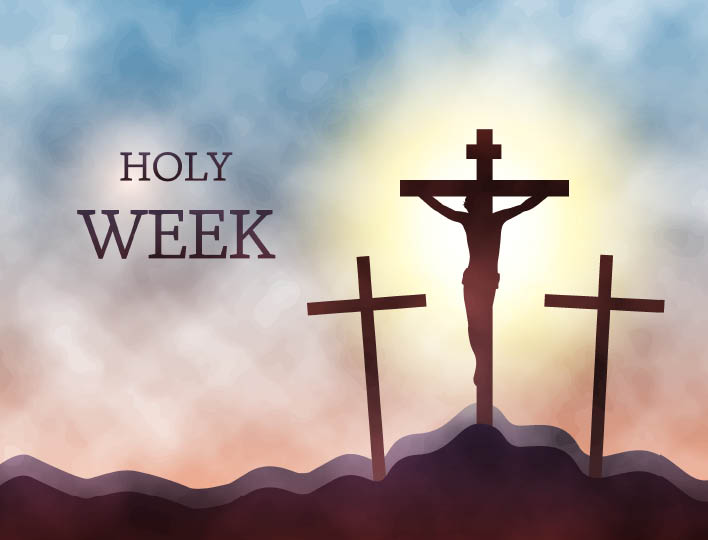
Holy Thursday: Take time to recall the most special meals you have shared with family and friends. Who was at the table? What foods were served? Imagine yourself processing to the Table of the Lord tonight, and pray for your parish community and the Church throughout the world.
Good Friday: The fourth-century pilgrim Egeria recorded that on Good Friday the faithful gathered to hear each account of the Passion proclaimed between the hours of noon and 3 PM. Today, take time to prayerfully read Matthew 27:27-43, Mark 15:16-32, Luke 23:26-43, and John 19:16-27. Which account most deeply speaks to you and why? Take a personal cross or crucifix in your hands, and think about the enormity of the sacrifice that Christ made for you through his suffering and Death on the Cross. Pray for those suffering the emotional, physical, and financial effects of the coronavirus pandemic, and for all who are suffering in any way.
Holy Saturday: Recall experiences of being welcomed—into a family, into a neighborhood, into a new workplace, into your parish. Who welcomed you and how did they do so? What did their welcome mean to you? This is the night on which the Church throughout the world normally welcomes the elect and candidates for Full Communion through the celebration of the Sacraments of Initiation. Pray for the elect and candidates in your parish, and for the day when all can again gather together to celebrate welcoming them into the Church!
Easter Sunday: Even if you are unable to celebrate Easter with your parish family, wear your finest Easter outfit today and prepare a celebration meal! Begin an Easter season journal listing blessings, sights, sounds, and moments that inspire you to sing Alleluia today and throughout the Easter season!
Mary Sellars Malloy has over forty years’ experience as a Catholic educator and lay minister. She is a frequent workshop presenter on the topics of prayer, liturgy, spirituality, the Sacraments, and the RCIA. In addition, Mary leads retreats and parish missions throughout the country. Her goal is to encourage Catholics of all ages to appreciate and to live their Catholic faith.
Pagination
Latest
Categories
Archives
- February 2015 (2)
- March 2015 (2)
- April 2015 (5)
- May 2015 (3)
- June 2015 (6)
- July 2015 (3)
- August 2015 (5)
- September 2015 (5)
- October 2015 (4)
- November 2015 (2)
- December 2015 (1)
- February 2016 (2)
- March 2016 (1)
- April 2016 (2)
- May 2016 (2)
- July 2016 (2)
- August 2016 (2)
- September 2016 (1)
- October 2016 (5)
- November 2016 (1)
- December 2016 (3)
- January 2017 (2)
- February 2017 (3)
- March 2017 (2)
- April 2017 (1)
- June 2017 (2)
- July 2017 (2)
- August 2017 (1)
- April 2018 (1)
- October 2018 (2)
- December 2018 (2)
- February 2019 (3)
- March 2019 (2)
- April 2019 (2)
- May 2019 (3)
- June 2019 (1)
- July 2019 (16)
- August 2019 (8)
- March 2020 (4)
- April 2020 (6)
- May 2020 (8)
- June 2020 (7)
- July 2020 (5)
- August 2020 (7)
- September 2020 (4)
- October 2020 (5)
- November 2020 (9)
- December 2020 (11)
- January 2021 (10)
- February 2021 (8)
- March 2021 (5)
- April 2021 (4)
- May 2021 (4)
- June 2021 (5)
- July 2021 (2)
- August 2021 (3)
- September 2021 (4)
- October 2021 (4)
- November 2021 (2)
- December 2021 (5)
- January 2022 (4)
- February 2022 (4)
- March 2022 (9)
- April 2022 (7)
- May 2022 (9)
- June 2022 (12)
- July 2022 (7)
- August 2022 (10)
- September 2022 (9)
- October 2022 (11)
- November 2022 (8)
- December 2022 (7)
- January 2023 (2)
- February 2023 (10)
- March 2023 (9)
- April 2023 (10)
- May 2023 (8)
- June 2023 (4)
- July 2023 (3)
- August 2023 (2)
